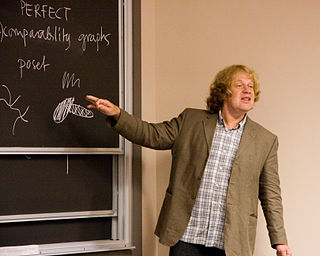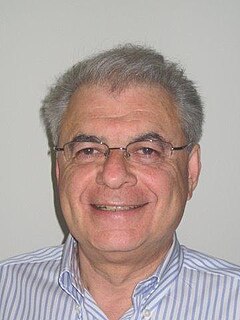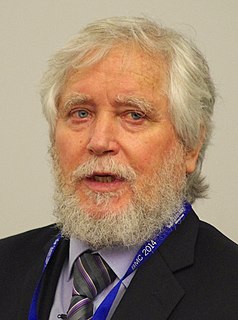 W
WLászló "Laci" Babai is a Hungarian professor of computer science and mathematics at the University of Chicago. His research focuses on computational complexity theory, algorithms, combinatorics, and finite groups, with an emphasis on the interactions between these fields.
 W
WKároly Bezdek is a Hungarian-Canadian mathematician. He is a professor as well as a Canada Research Chair of mathematics and the director of the Centre for Computational and Discrete Geometry at the University of Calgary in Calgary, Alberta, Canada. Also he is a professor of mathematics at the University of Pannonia in Veszprém, Hungary. His main research interests are in geometry in particular, in combinatorial, computational, convex, and discrete geometry. He has authored 3 books and more than 130 research papers. He is a founding Editor-in-Chief of the e-journal Contributions to Discrete Mathematics (CDM).
 W
WBéla Bollobás FRS is a Hungarian-born British mathematician who has worked in various areas of mathematics, including functional analysis, combinatorics, graph theory, and percolation. He was strongly influenced by Paul Erdős since the age of 14.
 W
WProfessor Sándor Csörgő was a Hungarian mathematician, and a professor at the University of Szeged.
 W
WPéter Frankl is a mathematician, street performer, columnist and educator, active in Japan. Frankl studied Mathematics at Eötvös Loránd University in Budapest and submitted his PhD thesis while still an undergraduate. He holds PhD degree from University Paris Diderot as well. He has lived in Japan since 1988, where he is a well-known personality and often appears in the media. He keeps travelling around Japan performing. Frankl won a gold medal at the International Mathematical Olympiad in 1971. He has seven joint papers with Paul Erdős, and eleven joint papers with Ronald Graham. His research is in combinatorics, especially in extremal combinatorics. He is the author of the union-closed sets conjecture.
 W
WLászló Lovász is a Hungarian mathematician, best known for his work in combinatorics, for which he was awarded the Wolf Prize and the Knuth Prize in 1999, and the Kyoto Prize in 2010. He was the president of the Hungarian Academy of Sciences between 2014 and 2020. He served as president of the International Mathematical Union between January 1, 2007 and December 31, 2010.
 W
WJános Pach is a mathematician and computer scientist working in the fields of combinatorics and discrete and computational geometry.
 W
WGábor J. Székely is a Hungarian-American statistician/mathematician best known for introducing energy statistics (E-statistics). Examples include: the distance correlation, which is a bona fide dependence measure, equals zero exactly when the variables are independent; the distance skewness, which equals zero exactly when the probability distribution is diagonally symmetric; the E-statistic for normality test; and the E-statistic for clustering.
 W
WEndre Szemerédi is a Hungarian-American mathematician and computer scientist, working in the field of combinatorics and theoretical computer science. He has been the State of New Jersey Professor of computer science at Rutgers University since 1986. He also holds a professor emeritus status at the Alfréd Rényi Institute of Mathematics of the Hungarian Academy of Sciences.
 W
WGábor Tardos is a Hungarian mathematician, currently a professor at Central European University and previously a Canada Research Chair at Simon Fraser University. He works mainly in combinatorics and computer science. He is the younger brother of Éva Tardos.
 W
WAndrás Vasy is an American, Hungarian mathematician working in the areas of partial differential equations, microlocal analysis, scattering theory, and inverse problems. He is currently a professor of mathematics at Stanford University.